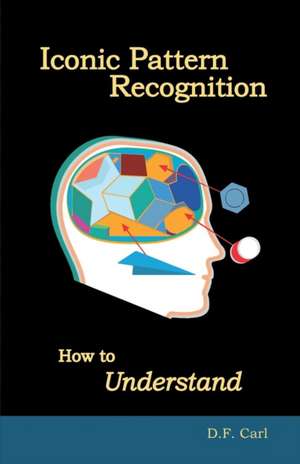Iconic Pattern Recognition
Autor D F Carlen Limba Engleză Paperback – 30 noi 2015
Preț: 109.57 lei
Nou
Puncte Express: 164
Preț estimativ în valută:
20.97€ • 22.03$ • 17.63£
20.97€ • 22.03$ • 17.63£
Carte tipărită la comandă
Livrare economică 08-14 martie
Preluare comenzi: 021 569.72.76
Specificații
ISBN-13: 9780996263412
ISBN-10: 0996263411
Pagini: 164
Dimensiuni: 140 x 216 x 9 mm
Greutate: 0.2 kg
Editura: IPRess
ISBN-10: 0996263411
Pagini: 164
Dimensiuni: 140 x 216 x 9 mm
Greutate: 0.2 kg
Editura: IPRess
Notă biografică
D. F. Carl currently lives next to Miniscule Mountain Park in New Hampshire. For most of his life, he has studied thinking (not to be confused with what psychologists study, e.g. measurable physiological responses or behavior).He has noted that big problems are rarely solved with the same kind of approach that created them. For example, despite decades of accumulated theories in educational psychology, half of American students still fail to understand algebra or higher math.Forgoing advanced degrees in educational psychology, he has explored less-orthodox but more immediately-practical ways of thinking about educational problems.
